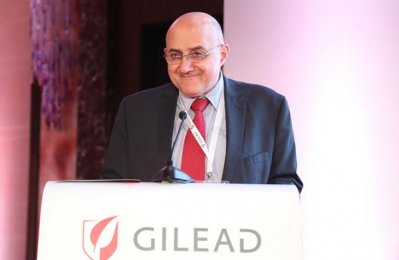The recent HIV Summit in the Middle East saw over 100 global and regional experts convene in Dubai, UAE to discuss clinical challenges and unmet medical needs in the management of HIV in the Middle East.
The event, sponsored by Gilead Sciences, a top biopharmaceutical company, also highlighted strategies to reduce the prevalence of HIV in the region.
Dr Samer El-Ali, medical director, Gilead Sciences Middle East stated: “This Summit evidences how important the treatment and management of HIV is for the healthcare community in the Middle East. Our ambition is to establish a strong consensus to drive progress and better support people living with HIV across the region particularly through treatment simplification.”
Rates of new HIV infections and AIDS-related deaths are rising faster in the Mena region than anywhere else globally. According to the latest data available from the Joint UN Programme on HIV and AIDS (UNAIDS), there are 230,000 people living with HIV in Mena and there were an estimated15,000 AIDS-related deaths in 2013,an increase of 66 per cent in the number of annual deaths since2005.
The experts at the HIV Summit also aimed to explore the challenges to reach the UNAIDS target 90-90-90 and discuss the efficacy and safety of antiretroviral therapeutic strategies. A special focus was on optimising the management of HIV aging patients with one or more additional diseases and taking a number of medications.
HIV healthcare leaders at the Summit shared insights and experience for optimising the management of patients living with HIV chaired by a well-recognised scientific committee.
Jacques Mokhbat MD, professor of Medicine, Division of Infectious Diseases, Lebanese American University, School of Medicine said: “There are a number of challenges in treating HIV in the Middle East and its prevalence is rising across the region. This Summit, coupled with co-ordinated action from government in the Arab States, signals our intent to answer these challenges and turn the tide on the spread of HIV.”
Other topics under discussion at the Summit included HIV and epidemiology challenges in the Middle East, living with HIV as a chronic condition and recent advances in HIV treatments as well as national perspectives of HIV management in KSA, UAE, Kuwait, Qatar, Oman and Lebanon. A patient case forum was also held where representatives from KSA, UAE, Kuwait, Qatar, UK and Germany discussed the treatment of HIV in real-world settings.
Dr Abdullah Al Ustadi, consultant physician, Infectious Disease Department at Rashid Hospital stated: “UAE offers universal access to free and comprehensive HIV treatment, care and support for all UAE nationals, including antiretroviral therapy. In Dubai we have approximately 250 registered patients with HIV, out of which 140 are undergoing the treatment.”
However, clinical practice has identified that problems with follow-up or adherence exist among some patients, primarily due to disease related stigmatization. Creating and implementing specific, culturally suitable programmes that could appropriately address the denial and stigma in the region are the key to a timely and appropriate response to ending HIV epidemic. – TradeArabia News Service
HIV management in focus at Dubai summit

Jacques Mokhbat

&uuid=(email))